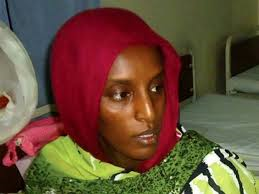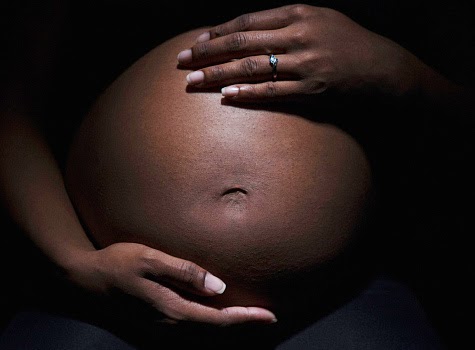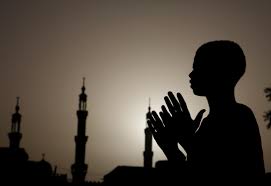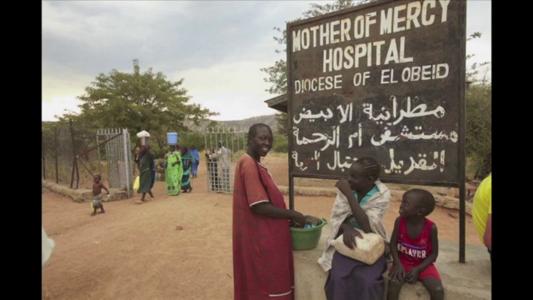Meriam Ibrahim
Question 25 Jun 2014 : Column WA164
Asked by Lord Alton of Liverpool
To ask Her Majesty’s Government when they will answer the question asked by Lord Alton of Liverpool on 10 June (HL Deb, col 236), and on 11 June (HL Deb, col 418), about whether asylum in the United Kingdom will be offered to Meriam Ibrahim, who has been imprisoned and given a death sentence in Sudan.[HL317]
The Parliamentary Under-Secretary of State, Home Office (Lord Taylor of Holbeach) (Con): The UK has a proud record of offering sanctuary to those who need it. Each claim for asylum is carefully considered and where we find individuals are in need of our protection, asylum is given. However, to be eligible for international protection, a person must be located outside of their country of origin.
South Sudan
Question 25 Jun 2014 : Column WA171
Asked by Lord Alton of Liverpool
To ask Her Majesty’s Government whether they plan to commit to ensuring that diplomatic engagement with South Sudan continues beyond the signing of and re-commitment to a ceasefire, in order to support an inclusive national dialogue process.[HL315]
The Senior Minister of State, Department for Communities and Local Government & Foreign and Commonwealth Office (Baroness Warsi) (Con): Recommitting to a ceasefire is an important step, but it is only the first step in a long process towards national reconciliation in South Sudan. We welcome the agreement reached between President Salva Kir and Riek Machar to work towards the formation of a transitional government of national unity. This is a further positive step. But both parties must continue to engage constructively in the Intergovernmental Authority on Development (IGAD)-mediated peace talks in Addis. The UK, along with our troika (UK, US and Norway) and EU partners, continues to support IGAD efforts to resolve the crisis with both financial assistance and expertise. The UK Special Envoy to the South Sudan peace talks has attended each session of the talks in an advisory capacity since his appointment in January this year, including when the latest agreement on transitional government was reached on 10 June. The Special Envoy has also
met with both parties in South Sudan and has engaged regional leaders whose influence is vital to the peace process. We are exploring with troika partners further ways in which we can support the national dialogue process, both financially and administratively.
Wednesday June 11th Queens Speech Debate
http://www.parliament.uk/business/publications/hansard/lords/todays-lords-debates/#m738
5.15 pm
Lord Alton of Liverpool (CB):
My Lords, the Government and the Foreign Secretary deserve to be congratulated for the commitment that they have made to combating violence against women. The House can take real pride in the role that the Minister of State, the noble Baroness, Lady Warsi, has taken in demonstrating that gender, talent and faith can be great assets while holding high office.
How very different the situation is in Nigeria, where Boko Haram—which means “eradicate western education”—can abduct and kill with impunity. How very different the situation is in Sudan, which incarcerates a woman and sentences her to death on trumped-up charges of adultery and apostasy. How very different the situation is in Pakistan, where a brave and courageous schoolgirl, Malala Yousafzai, was shot for defying the Taliban’s opposition to education for girls; a country disfigured by honour killings, blasphemy laws and impunity in the face of the assassination of its courageous Minister for Minorities, Shahbaz Bhatti, whose killers have still not been brought to justice.
The jihadists, from Boko Haram to Omar al-Bashir, the President of Sudan, who has been indicted by the International Criminal Court for crimes against humanity, hold a common, distorted ideology, which festers in poverty, hates difference and exploits grievance. For majorities, such as women, or for followers of minority faiths, life is often a living hell. Last week, the charity Open Doors said that, today, one Christian is martyred every three hours. On 31 May, the Times, in a powerful leading article, said:
“Western politicians until now have been reluctant to speak out … We cannot be spectators at this carnage”.
When they are not being murdered, they are being forced to pay extortionate jizya tax—protection money—to leave or to die, like the two men who were recently crucified by ISIS in Syria. I was given an account only today from Syrian refugees who are in Jordan, unable to pay a ransom. The head of the family was kidnapped and executed.
Last night, as we heard from the noble Lord, Lord King, and my noble and gallant friend Lord Stirrup, Mosul fell to ISIS. Not surprisingly, overnight, 120,000 people, many Christians, were reported to have fled from Mosul to the plains of Nineveh. When he comes to reply, I hope that the noble and learned Lord, Lord Wallace of Tankerness, will tell us what is being done to protect those people who are fleeing from the depredations of ISIS.
I also hope that the noble and learned Lord will update us on the plight of the 276 schoolgirls abducted by Boko Haram in April in north-east Nigeria, along with 20 more women abducted this week.
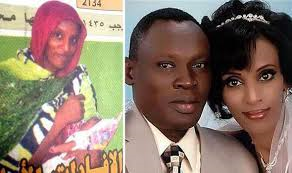
I hope that he will also answer the question left partially unanswered yesterday when I raised the case of Meriam Ibrahim, the Sudanese woman sentenced to 100 lashes and execution, and forced to give birth while shackled in her prison cell. I asked if we would unambiguously offer Meriam Ibrahim and her two little ones asylum and refugee status in this country, demonstrating our values against the values of those who have perpetrated what, for me, is the real crime.
Sudan’s archaic, cruel and medieval laws have also led to Intisar Sharif Abdallah being sentenced to death by stoning and to Lubna Hussein being sentenced to lashing for dressing indecently—that is, for wearing trousers. According to Al-Jazeera, in Sudan in one recent year, 43,000 women were publicly flogged. As we have seen in Darfur, where an additional 600,000 IDPs in the past year have brought the number of displaced people to more than 2.2 million, and in the genocidal campaign in South Kordofan, this is a corrupt Government which uses Sharia to prey on the weak and to kill its own people.
Three months ago, Sudan suspended the work of the International Committee of the Red Cross. In April, it expelled a senior official of the United Nations. When did we last raise these questions in the Security Council? This, after all, is a country which signed up to the 1948 Universal Declaration of Human Rights. It is not worth the paper on which it is written as far as Sudan is concerned. We have to be clear about the implications when a radicalised view of Islam comes to prevail and when democracy, modernity and secularism are seen as spectres—the implications are there of course for the United Kingdom too.
The noble Baroness represents an alternative approach, based on plurality, tolerance, decency and common humanity.
I have previously argued in your Lordships’ House that the Universal Declaration of Human Rights should be at the heart of such an approach and, indeed, of our foreign policy, and should inform every aspect of the positions that we strike. The implementation of the declaration should be the goal of our foreign policy and a condition of both aid and support.
I will end with one final example. I have chaired the All-Party Group on North Korea for 10 years. Earlier this year, the United Nations Commission of Inquiry, chaired by Mr Justice Kirby, said of North Korea:
“The gravity, scale and nature of these violations reveal a State that does not have any parallel in the contemporary world”.
If that is so, and if we are committed to the upholding of human rights, why have we done nothing so far to ensure that the findings in that Commission of Inquiry Report have been laid before the Security Council?
5.20 pm
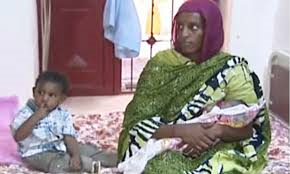
Pregnant Christian Woman Sentenced to Death in Sudan.
http://www.copts.eu/articles/6596-first-picture-and-video-of-the-baby-born-in-a-sudan-jail-to-mother-sentenced-to-hang-for-marrying-a-christian.html
Also see http://t.co/EXbM8T05Y7 – the view of Muslims who oppose this barbarism in Sudan.
To help Meriam Yahia Ibrahim sign this petition:
President of Sudan , Omar Al-Bashir: Save Mariam Yahya
To: President of Sudan , Omar Al-Bashir:
http://www.avaaz.org/en/petition/President_of_Sudan_Omar_AlBashir_Save_Mariam_Yahya/?keUkhab
Also see this article by Nina Shea
http://www.thedailybeast.com/articles/2014/05/17/in-sudan-a-pregnant-woman-may-be-hanged-for-marrying-a-christian.html#
Meriam Yahia Ibrahim, a Christian woman from a Muslim background, was arrested on 17th February 2014 and charged on 4th March with adultery and apostasy. She is married to a Christian of South Sudanese origin. The couple have a young son (who is with Meriam in prison) and are expecting their second child later this month. The Government of Omar al Bshir (indicted by the International Criminal Court for Crimes against Humanity) does not recognise the couple’s marriage, hence the adultery charge.
A further court hearing was held today (15th May). Meriam had been given three days to recant. However, at today’s hearing she calmly confirmed to the judge that she remains a Christian. The judge accordingly confirmed the sentence for apostasy of death by hanging. He also sentenced her to 100 lashes for adultery. The death sentence is to be imposed two years after she gives birth to their second child.
The lawyer acting for Meriam is preparing an appeal which must be submitted within 15 days. Meriam’s husband was not permitted to attend the court hearing today, and has been denied access to Meriam and their son in the prison.
Representations may be made to Sudan’s Misiter of Justice, Mohamed Bushara Dousa at [email protected]
The telephone number of the Sudan Embassy in London is 0207 839 8080
[email protected] or tweet the UK embassy in Khartoum @SudanUnit
Meanwhile, in South Kordofan the killing continues as the Government of Sudan bomb the region’s only hospital. It is condemned as a war crime.
The hospital, funded by Irish donors in the Nuba mountains region of South Sudan, is back up and running having suffered aerial attacks over two days at the beginning of May.
The Catholic Mother of Mercy hospital, which is funded by donations via Trócaire, is the only functioning hospital for the area of South Kordofan and caters for some 150,000 people amid the conflict between rival forces first sparked in 2011, ostensibly over the disputed oil-rich Abyei region.
There are currently 1,000 patients at the facility.
Despite being located away from military installations and strategic interests, the hospital became the target of an aerial bombardment on May 1, and again the following day. Five of some 11 bombs dropped found their target, and though no fatalities were reported, staff and patients were injured as hospital buildings were blasted.
The European Union delegation to Khartoum said in a statement that it “noted with concern” reports of the bombing, stressing that hospitals are protected civilian facilities under international law.
Failure to distinguish between the military and civilians “represents an indiscriminate attack and is a war crime,” the statement said.
– See more at: http://www.irishcatholic.ie/article/irish-backed-hospital-south-sudan-bombed#sthash.cxBwpQPu.dpuf
Speech on the situation in South Sudan, 6.58 pm 24 Mar 2014 : Column 414
Lord Alton of Liverpool (CB): My Lords, the whole House is indebted to the noble Lord, Lord Chidgey, for tabling this Question for Short Debate. I am sure that we all thank him for the eloquent way in which he set the scene for this debate.
Following the fighting that broke out in Juba last December, we have seen the violence spread like a plague to Jonglei, Unity and Upper Nile states, where fresh clashes only last week have rendered those areas inaccessible to humanitarian agencies. As we have heard, unverified reports suggest more than 10,000 fatalities. The key message of our debate to all sides should surely be that there should be an immediate cessation of hostilities with no delay.
Both President Kiir and his former deputy, Riek Machar, must understand that anything which further exacerbates the existing ethnic tensions, particularly between the Dinka and Nuer, risks the very future of South Sudan and plays into the hands of those who wanted the world’s newest state to fail from the very outset. They should also take careful note of the statement of the special envoys of the European Union, the United States and Norway in which the troika warned them that, if they fail to engage constructively with the IGAD-led talks, “they will face consequences” and that:
“The people of South Sudan expect renewal, they expect their voices to be heard in forging a more sustainable peace. Business as usual is not a viable way forward”.
The suffering of the people of South Sudan is being further compounded by the collateral effects on humanitarian relief and those who work so selflessly to provide it. Since January there have been three fatalities among aid workers, more than 100 were prevented from relocating from Yirol in Lakes state to Juba for safety, and more than 75 humanitarian vehicles have been commandeered or stolen. It is impossible to feel anything but deep admiration for those aid workers still in the field, risking their lives to bring relief and help to the destitute. Surely there is more that we could do to give them practical help and support.
With 3.7 million people now experiencing acute food insecurity and 7 million facing some degree of food insecurity, according to figures provided by the food security and livelihoods cluster, does the Minister
24 Mar 2014 : Column 414
agree that if, as the noble Lord, Lord Avebury, has just mentioned, pastoralists and farmers prove unable to move with their livestock or to plant their seeds at the outset of this rainy season, it is becoming increasingly possible that this crisis of food insecurity will freefall into outright famine? I hope that the Minister will update us on the Government’s own assessment. Perhaps she can also tell us whether, with the reallocation of funds from development projects in other parts of the country to emergency food relief, she would concur that this poses a threat to the country’s long-term recovery. Is it the case that the crisis response plan for humanitarian activities until June 2014 is around only 23% funded, with a shortfall of £592 million? How can that gap be filled?
Over these weeks we have seen former allies become enemies, old grievances re-ignited, and tribalism and factions threatening the cohesion of South Sudan. The failure to address many of these underlying issues and challenges—many of which were well known but ignored in the framing of the 2005 comprehensive peace agreement—has played its part in the genesis of this new eruption of violence. Any political agreement crafted between power brokers and warlords that does not address grievances and fails to reach out to affected communities will be a poor basis on which to build a peace. There needs to be a fundamental shift in the way that politics is practised in South Sudan. It cannot be based on deals between a couple of competing leaders. Sudan’s churches have always had a historic and important role as peacemakers, and groups such as Citizens for Peace and Justice—a coalition of 30 civil society organisations—should be given direct and independent participation at the IGAD negotiating table. They at least, in contrast to some of the political leaders, have had an enduring interest in the humanitarian needs of the people.
As is always the case when violence replaces negotiated political solutions, powerless, vulnerable people, especially women and children, are caught in the cross-fire and are the ones who suffer the most. From December to mid-January, almost 500,000 people were displaced. It is predicted that total displacement may reach more than 900,000 and that 40% of those will be children. The impact is also spreading to neighbouring countries. As we have heard, there are now around 222,000 refugees. As of 12 March, 70,000 South Sudanese had crossed into Ethiopia seeking asylum, with the number expected to reach more than 150,000 by the end of this year. Perhaps the Minister can update us on the Government’s own assessment of the numbers and of those who have been responsible for these events. Is there not an argument for the United Kingdom to have in place a full-time special envoy to Sudan?
We have seen attacks on civilians by government forces, attacks on civilians by opposition forces, ethnic targeting by government forces, and widespread destruction and looting. Perhaps the noble Baroness can tell us what is being done to hold those responsible to account and particularly to tackle the recruitment and arming of children and young people into their militias. Can she also tell us whether she thinks that the commission of inquiry, which has been referred to, is sufficiently well resourced? Will it have unimpeded access to the affected areas? As well as bringing
24 Mar 2014 : Column 415
perpetrators to justice, does it have within its terms of reference the creation of mechanisms for settling grievances which might pre-empt future eruptions of violence, while fostering a climate in which reconciliation might occur? Reconciliation is not a soft issue—an add-on which might be nice to have—but a hard-edged security requirement.
Will the Minister say what child protection specialists are in the field and whether we have formally requested the UN Special Representative of the Secretary-General for Children and Armed Conflict to travel to South Sudan and report to the Security Council, so that due weight can be attached to addressing the appalling plight of the children whose lives have been shattered by these events? Perhaps I may also ask whether the British Government will be bankrolling the elections next year. How can we possibly imagine that an accurate census can be taken when 1 million people are displaced? What genuine choices will be able to be made?
As I conclude, I should be grateful if the Government would tell us what intelligence they have on the role and influence of South Sudan’s neighbours in the conflict. The harsh reality is that events in South Sudan have enabled Khartoum to continue its systematic war of attrition against the people of South Kordofan and Blue Nile. The reality is that events in South Sudan have taken the spotlight off the 18 states affected by armed conflict in the north—not least in Darfur, where violence continues unabated and largely unreported.
7.06 pm
David Alton ( Lord Alton of Liverpool).
South Sudan
Questions
4 Feb 2014 : Column WA47
Asked by Lord Alton of Liverpool
To ask Her Majesty’s Government what assessment they have made of the recruitment of child soldiers by the White Army in South Sudan; what are the command structures of the Army; who they consider controls it; and what they consider can be done to disarm it.[HL4973]
Baroness Warsi: The so-called White Army is an amalgamation of disparate community-based forces with wide-ranging motivations including ethnic rivalry and political grievances. It does not have a command structure in the conventional military sense and has no clear single commander. Various claims have been made during the recent conflict about the political affiliation and command of groups of Nuer youth, described as the White Army by some commentators and political leaders, but evidence to support these claims is limited.
We do not currently have direct evidence of active recruitment of child soldiers by armed groups, but we judge that it is highly likely to have taken place. It will take some time following the cessation of hostilities to assess the humanitarian impact on South Sudan’s children, and whether any resurgence of child recruitment may have taken place.
The Cessation of Hostilities agreement signed on 23 January should apply to all those groups involved in the recent conflict, including those groups who have been described as the White Army. We expect the demobilisation and disarmament of irregular forces will be important questions for the political negotiations that are expected to resume on 7 February. It is vital that the needs of any children recruited during the conflict are specifically addressed as part of any disarmament and demobilisation process.

